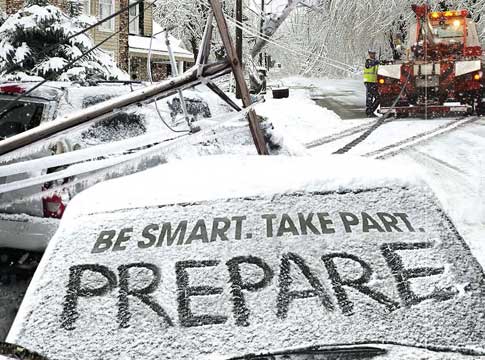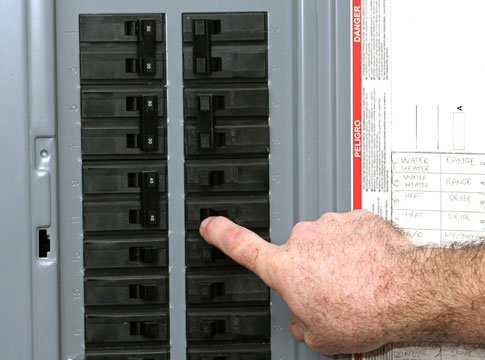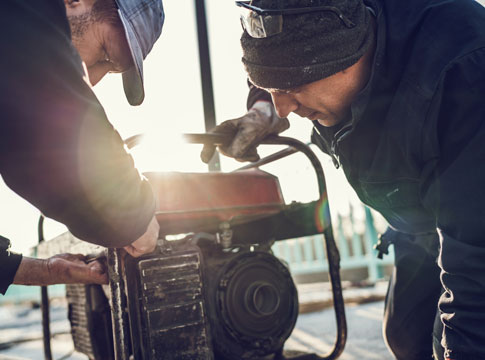Related News
Related News
-
Our Favorite Photos of 2025
For a final look-back at 2025, we’d like to share some of our favorite photos that illustrate our work day-in and day-out. We celebrate amazing teamwork, vital partnerships, and sing the praises of our individual champions and their quiet dedication to serving our community!
Find Out More -
EWEB and the UO launch energy generation pilot project
Pilot project gives EWEB the option to run UO’s on-site natural gas generator this winter, gathering valuable insight into the generator’s efficiency and reliability.
Find Out More -
Energy shortfall of 9 gigawatts projected for the Northwest
By 2030, a dry year combined with soaring energy demand during extended cold snaps could lead to rolling blackouts, a new study warns.
Find Out More -
Sustainability Snapshot - Celebrating Energy Efficiency Projects in the Community
Sustainability Snapshops highlight impactful projects completed by EWEB's Customer Solutions department, as a way to celebrate the meaningful work happening behind the scenes.
Find Out More -
EWEB Sets 2026 Budget and Rates, Advances Evaluation of McKenzie Valley Service Territory Realignment
Taken together, the 2026 budget and rate adjustments and the territory-realignment evaluation reflect EWEB’s dedication to responsible financial stewardship, modern, resilient utility infrastructure, and thoughtful planning for the future.
Find Out More -
EWEB secures $2.5 billion of reliable, affordable, carbon-free energy for customers
The new contract with EWEB’s largest energy supplier, the Bonneville Power Administration, forms the foundation of a diverse energy portfolio.
Find Out More -
Women in STEM: Meet the Hydro Project Engineer Building Habitat for Salmon
EWEB Engineer Associate Val Chang found her way to the McKenzie River from Los Angeles, inspired by heritage trips to the waters of Taiwan and key mentors along the way.
Find Out More -
Public Power Week Poster Contest Winners 2025
The results are in! View the winning posters from EWEB's 2025 Public Power Week Poster Contest.
Find Out More -
EWEB Hometown Heroes compete internationally
Out of 290 teams from 14 different countries, EWEB's Lineman Rodeo team places in the top third of competitors.
Find Out More -
Let's Talk Turkey. Is your family ready for winter?
We're heading into the holidays, but that also means snow, ice, and not-so-nice weather might be in the forecast. Here are some tips to prepare in advance.
Find Out More -
Vote for your favorite Public Power Week Posters
The top five submittals will receive awards. Help us pick the winners.
Find Out More -
EWEB Partners with Eugene School District 4J to Celebrate New Kennedy Middle School Emergency Water Station Site
Hundreds of attendees practiced filling up water containers at Saturday's demonstration event.
Find Out More -
Electric Projects underway in North & South Eugene
Underground lines and disaster-resilient power poles are part of EWEB’s infrastructure upgrade near Eugene’s largest natural resource area.
Find Out More -
The Bonneville Power Administration Rate Change and Your EWEB Bill
BPA’s finalized rate increase is smaller than projected, and EWEB’s pass-through adjustment effective October 1, 2025 will now be 2.7% for residential customers—down from the anticipated 4%.
Find Out More -
Join the Pledge to Prepare
When you think about getting ready for an emergency, you probably have questions. You aren't alone. Preparing for emergencies can be overwhelming, which is why EWEB has put together a 12-month program to help you and your family get two weeks ready.
Find Out More - Show More
Fall is the perfect time to prepare for winter storm season
October 13, 2023 • Robyn Smith, EWEB Communications

Winter is coming, which increases the likelihood of storm-related power outages.
Improving EWEB's extreme weather preparedness and response while replacing and reinforcing aging infrastructure is a top priority, but power outages can still occur. It's important to be prepared, and there are simple actions you can take right now.
Prepare your home and family ahead of winter:
- Store 14 gallons of water per person (one gallon per person, per day is enough for two weeks).
- Stock up on nonperishable food for the entire family.
- Build an emergency kit for your vehicle and develop an emergency plan for your family members.
- Stock up on batteries and power banks to recharge cell phones and other electronic devices
- Buy a battery-powered radio to receive updates if the power is out for an extended period of time.
- Keep your fuel tanks full. If the power goes out, you may want to use your grill or camp stove for cooking, so make sure you have an adequate supply of fuel on hand. It's also a good idea to keep your car's tank full, since gas station fuel pumps rely on electricity. If you have an Electric Vehicle, charge it up ahead of predicted storms.
- Make sure you know how to open and close your garage door manually.
- Join EWEB’s Pledge to Prepare
To receive emergency alerts by email, sign up for EWEB’s Emergency Alert & Preparedness email list.
How to protect yourself during a power outage
Update your account info before the next storm
To avoid extra steps during a power outage, and to be placed on a restoration plan, please make sure your current cell phone number is tied to your EWEB account. Update your account by contacting customer service at 541-685-7000 or EWEB.Answers@eweb.org.
Prepare ahead of time for a Power Outage
Take an inventory of the items you need that rely on electricity. Plan for batteries and other alternative power sources, such as a portable charger or power bank, to meet your needs when the power goes out. Have flashlights for every household member. Determine whether your home phone will work in a power outage and how long battery backup will last. Prepare an emergency supply kit.
Know Your Medical Needs
Talk to your medical provider about a power outage plan for medical devices powered by electricity and refrigerated medicines. Find out how long medication can be stored at higher temperatures and get specific guidance for any medications that are critical for life.
Food Storage
Have enough nonperishable food and water. Keep freezers and refrigerators closed. The refrigerator will keep food cold for about four hours. A full freezer will keep the temperature for about 48 hours. Use coolers with ice if necessary. Monitor temperatures with a thermometer. Throw out food if the temperature is 40 degrees or higher.
When Using Appliances During Power Outages
Install carbon monoxide detectors with battery backup in central locations on every level of your home. Avoid carbon monoxide poisoning. Generators, camp stoves or charcoal grills should always be used outdoors and at least 20 feet away from windows. Never use a gas stovetop or oven to heat your home. Turn off or disconnect appliances, equipment, or electronics. Power may return with momentary surges or spikes that can cause damage.
Getting updates about your power outage
Our outage map has the most recent information on power outages, including updates that show progress during an outage repair.
If you do not see your outage on the map, call our toll-free outage reporting line at 1-844-484-2300. You must complete all prompts to record your outage. During large or widespread outages, we will post updates on this website and on Facebook and Twitter.
If you have a Smart Meter with the communication feature enabled, EWEB is automatically notified when your power is out. Please do not report your power outage over Facebook or Twitter. We do not regularly monitor our social media channels outside of business hours.
If you see a downed power line
There's no way to know if a downed line is energized, so play it safe—assume it is live and stay away.
- Call our toll-free outage reporting line at 1-844-484-2300. You must complete all prompts to record your outage.
- If the downed line is across a street or sidewalk, call 911.
- Stay at least 50 feet (about the length of two busses) away from the line.
- If you see someone in contact with a power line, don't touch him or her, or you may become a victim too. Call 911 immediately.
- If a power line falls across your car, try to drive clear. If that fails, stay in the car. If you must get out because of imminent danger such as fire, be sure to leap clear so you don't touch the vehicle and the ground at the same time.
- If you see repair crews working on downed power lines, please drive carefully. Expect delays and use caution when driving near any repair crews working to restore your power.
Related Programs
We regularly receive reports of power outages that are actually a tripped breaker on the customer's circuit panel. Checking your circuit panel before reporting an outage can save you hassle and money.



